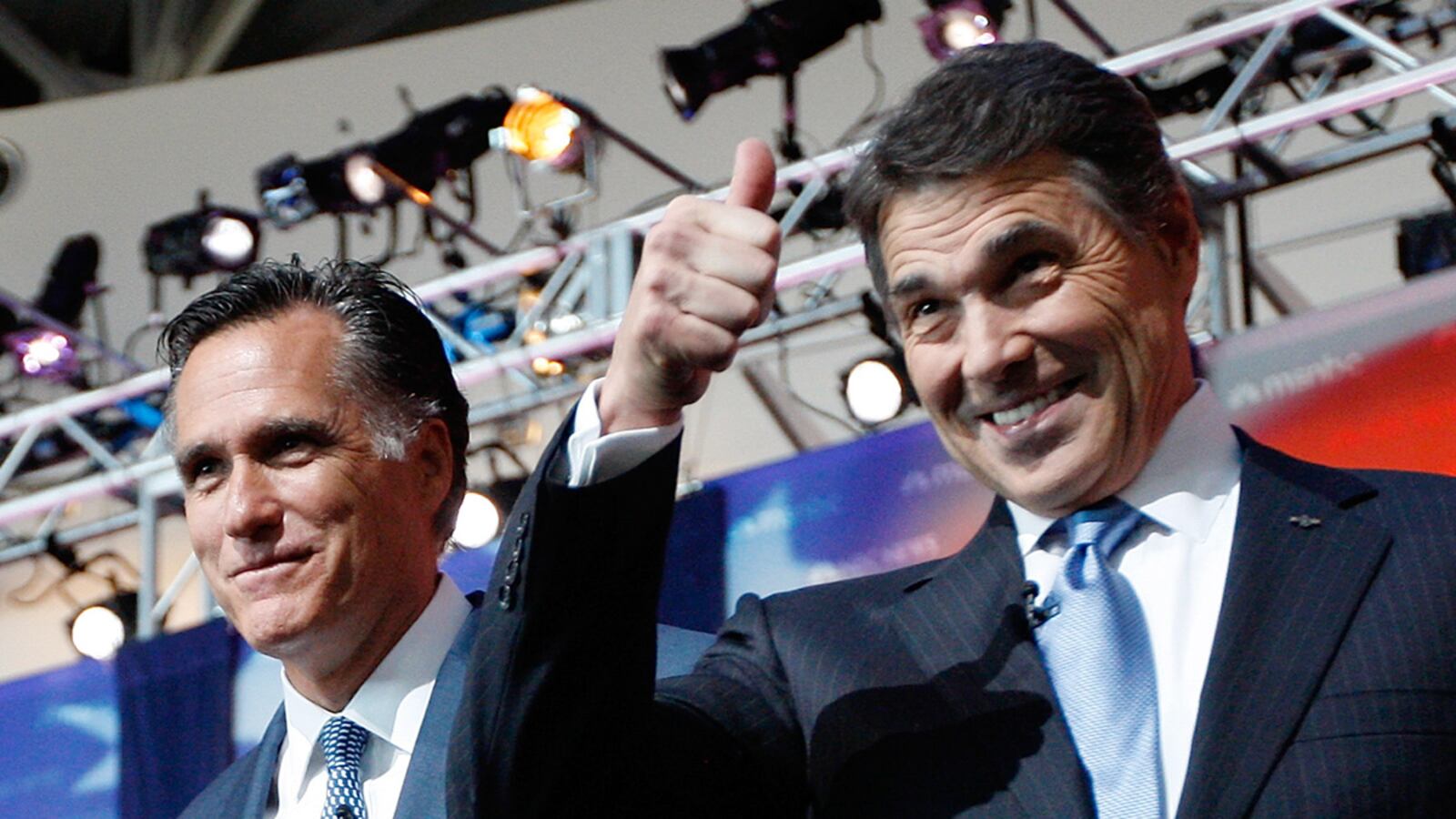Rick Perry and Mitt Romney went at it from the opening tipoff over who had the best record of creating jobs. By the end of the exchange, Romney was left arguing that Texas was a right-wing, right-to-work state while he had to govern in deep-blue Massachusetts. Perry won the moment—and with it the debate.
It’s not that Romney didn’t land a couple of jabs, but that it didn’t matter. Perry entered Wednesday’s MSNBC-Politico debate as the surging frontrunner, and nothing happened at the Reagan Library to slow him down.
Perry repeatedly ignored the moderators’ questions in favor of canned soundbites. But he delivered the scripted remarks with confidence, and the audience probably didn’t care. Romney turned in another steady performance, but that wasn’t enough, given his eroding position in the polls. The Perry team should be exchanging high fives.
Perry set the tone when Brian Williams said Texas had a high poverty rate and America’s highest proportion of minimum-wage jobs. “What Americans are looking for is someone who can get this country workin’ again,” the governor said, sidestepping the premise.
Perry landed his sharpest blow when he praised Romney’s private-sector record but said his chief rival fell flat in Boston: “Michael Dukakis created jobs three times faster than you did, Mitt.” Romney’s quick rebuttal—that George W. Bush in Austin created jobs more quickly than Perry—didn’t pack quite the same punch.
Perry’s most vulnerable moment came when Politico’s John Harris asked him about having written that Social Security violently tossed aside states’ rights. The governor doubled down, calling the retirement program a Ponzi scheme that won’t be able to deliver its promised benefits (which is what most younger folks believe)—but never quite saying what he’d do about it. Romney countered by saying the Republican nominee should be committed to saving Social Security, not having states opt out—but he blunted the accusation by not making it directly.

Romney’s most vulnerable moment came when Perry ripped him for adopting an individual mandate in his state health-care law. Romney offered a convoluted explanation that while he despised Obamacare, he was just offering a “model” for the country in Massachusetts. It’s a circle he never seems able to square.
Michele Bachmann, the best performer in the last two debates, really faded in this one, in part because the moderators gave her less time and in part because she seemed less aggressive than in the earlier encounters. Ed Rollins, who just stepped down as her campaign manager, grumbled about the lack of airtime on MSNBC, saying, “Clearly the show tonight was trying to make it a Romney-Perry show.”
Perry is going to get grief from columnists and editorial writers who will challenge some of his debate answers. But he did nothing to hurt himself with most GOP primary voters. Mitt Romney, the former venture capitalist, still has to devise a business plan to knock down Perry’s soaring stock.






